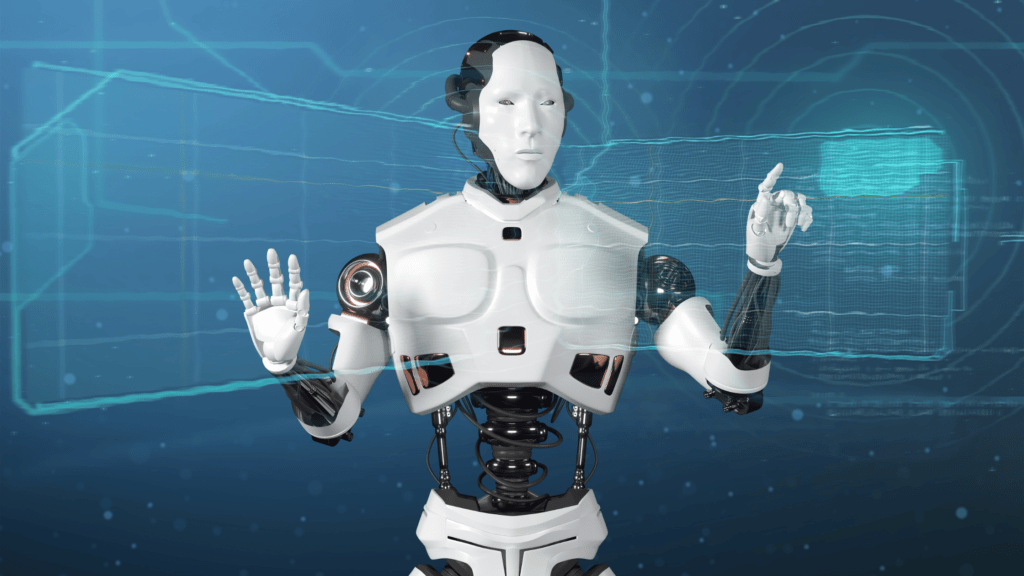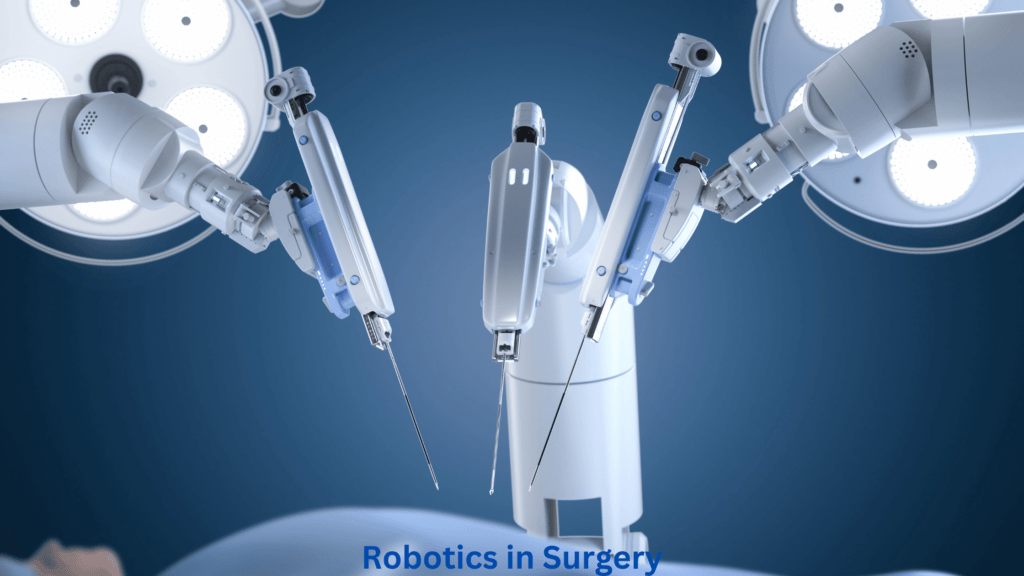Introduction
The healthcare industry in 2024 stands as a testament to human ingenuity and technological advancement. From the transformative power of AI in diagnostics to the precision of robotic-assisted surgeries, innovations in the healthcare industry are reshaping the landscape, promising not only improved outcomes but also enhanced patient experiences. This article delves into ten key innovations in healthcare industry that are making significant impacts this year.
10 Key Innovations in Healthcare industry in 2024
1. Telemedicine Evolution
Remote Patient Monitoring
Remote patient monitoring (RPM) has evolved significantly, offering real-time health data to medical professionals, and marking a key innovation in healthcare industry. These advanced systems now track a plethora of vital signs, including blood pressure, glucose levels, and even sleep patterns, providing continuous data that enable healthcare providers to make proactive interventions. For patients with chronic conditions, RPM is a game-changer, reducing the need for frequent hospital visits and allowing them to manage their health more effectively from the comfort of their homes.
Virtual Consultations
The shift towards virtual consultations represents another significant innovations in healthcare industry. Through secure video calls and digital health platforms, patients can now access medical advice without the need to travel, breaking down geographical barriers and democratizing healthcare access. This approach is particularly beneficial for individuals living in rural or underserved areas, ensuring they receive timely and appropriate medical attention. Virtual consultations also streamline healthcare delivery, reducing wait times and increasing the efficiency of medical practices.
2. Artificial Intelligence and Machine Learning

Predictive Analytics in Diagnostics
Artificial intelligence (AI) and machine learning (ML) are revolutionizing the diagnostic process, marking profound innovations in healthcare industry. These technologies analyze vast datasets to predict disease outbreaks, identify patient risk factors, and assist in early diagnosis. The predictive analytics capabilities of AI and ML surpass traditional diagnostic methods in both accuracy and speed, paving the way for a new era of precision medicine. By leveraging these technologies, healthcare providers can offer more accurate and timely diagnoses, improving patient outcomes significantly.
Personalized Treatment Plans
Machine learning also plays a crucial role in developing personalized treatment plans, another pivotal innovation in healthcare industry. By analyzing individual genetic profiles and health histories, ML algorithms can create tailored treatment regimens that enhance efficacy and reduce adverse effects. This patient-centric approach ensures that therapies are as unique as the patients themselves, fostering better adherence to treatment plans and improving overall health outcomes.
3. Genomic Medicine
CRISPR and Gene Editing
CRISPR technology has emerged as a groundbreaking innovation in healthcare industry, particularly in the field of genetic medicine. This powerful tool allows scientists to make precise edits to DNA, offering potential cures for previously untreatable genetic disorders. By correcting genetic mutations, CRISPR opens up new possibilities for preventing and treating hereditary diseases. The precision and versatility of CRISPR technology herald a new era in therapeutic interventions, where genetic diseases could become a thing of the past.
Precision Medicine
Precision medicine, another key innovation in healthcare industry, leverages genomic data to tailor treatments to the genetic makeup of each patient. This approach enhances the effectiveness of therapies while minimizing side effects, leading to more efficient and personalized healthcare solutions. By understanding the genetic basis of diseases, healthcare providers can develop targeted treatments that address the root cause of the condition, offering better patient outcomes and reducing the trial-and-error approach often associated with traditional treatments.
4. Wearable Technology
Health Tracking Devices
Wearable technology has seen exponential growth and represents a significant innovation in healthcare industry. Devices such as smartwatches and fitness trackers monitor a range of health metrics, including heart rate, activity levels, and sleep patterns. These health tracking devices provide continuous monitoring, enabling early detection of potential health issues and empowering individuals to take proactive measures in managing their health. The data collected by wearables can also be shared with healthcare providers, offering valuable insights for personalized care plans.
Smart Implants
Smart implants are at the cutting edge of wearable technology, epitomizing a revolutionary innovation in healthcare industry. These devices, capable of monitoring and responding to physiological changes in real time, offer unprecedented possibilities in managing chronic conditions and improving patient outcomes. For instance, smart implants can deliver medication precisely when needed or adjust their functionality based on the body’s responses, providing a dynamic and responsive approach to treatment.
5. Robotics in Surgery

Minimally Invasive Procedures
The use of robotics in surgery has revolutionized minimally invasive procedures, a major innovation in healthcare industry. Robotic systems enhance surgical precision, allowing for smaller incisions, reduced pain, and faster recovery times. These benefits lead to improved surgical outcomes and a significant reduction in post-operative complications. As robotic technology continues to advance, it promises to further refine surgical techniques, making procedures safer and more effective.
Robotic-Assisted Rehabilitation
Robotic-assisted rehabilitation is another transformative innovation in healthcare industry, particularly in the field of physical therapy. These robotic systems provide tailored rehabilitation programs and real-time feedback, accelerating recovery and improving the effectiveness of rehabilitation exercises. By assisting patients in performing precise movements and monitoring their progress, robotic-assisted rehabilitation enhances the overall quality of care and facilitates faster return to normal activities.
6. Blockchain for Health Records
Enhanced Data Security
Blockchain technology is revolutionizing the management of health records, representing a critical innovation in healthcare industry. By decentralizing data storage and implementing cryptographic techniques, blockchain ensures the security and integrity of sensitive health information. This enhanced data security protects patient privacy and reduces the risk of data breaches, fostering greater trust in digital health systems. The immutable nature of blockchain records also ensures that health data is accurate and tamper-proof.
Interoperability of Health Systems
Another significant benefit of blockchain technology is its ability to facilitate the interoperability of health systems, a key innovation in healthcare industry. Blockchain enables the seamless sharing of health records across different healthcare providers and institutions, improving coordination and continuity of care. This interoperability reduces administrative burdens, enhances patient experiences, and ensures that healthcare providers have access to comprehensive and up-to-date patient information, leading to more informed decision-making and better health outcomes.
7. 3D Printing in Healthcare
Custom Prosthetics and Implants
3D printing technology has revolutionized the production of custom prosthetics and implants, marking a significant innovation in healthcare industry. This technology allows for the creation of bespoke solutions tailored to individual anatomical requirements, enhancing patient comfort and functionality. Custom 3D-printed prosthetics and implants offer a higher degree of personalization, improving the quality of life for patients requiring these devices and reducing the risk of complications associated with standard implants.
Bioprinting Tissues and Organs
Bioprinting, a groundbreaking application of 3D printing, represents a profound innovation in healthcare industry. By printing tissues and organs layer by layer, bioprinting holds the potential to address organ shortages and revolutionize transplant medicine. This technology enables the creation of functional biological tissues that can be used for research, drug testing, and ultimately, transplantation. Bioprinting offers a promising solution to the critical shortage of donor organs and could transform the field of regenerative medicine.
8. Virtual and Augmented Reality
Medical Training Simulations
Virtual and augmented reality (VR and AR) are transforming medical education and training, highlighting a significant innovation in healthcare industry. These immersive technologies provide realistic simulations of medical procedures, allowing healthcare professionals to practice and hone their skills in a risk-free environment. VR and AR training simulations enhance the learning experience, improving the proficiency and confidence of medical practitioners. This innovative approach to medical education ensures that healthcare providers are better prepared to handle real-life clinical scenarios.
Patient Treatment and Pain Management
VR and AR are also being used in patient treatment and pain management, showcasing their versatility as an innovation in healthcare industry. These technologies can create calming virtual environments, distract patients during painful procedures, and provide therapeutic interventions for conditions such as anxiety and PTSD. VR and AR offer non-pharmacological options for pain management, reducing the reliance on opioids and other pain medications. By enhancing patient comfort and improving treatment outcomes, VR and AR are becoming valuable tools in modern healthcare.
9. Internet of Medical Things (IoMT)
Connected Medical Devices
The Internet of Medical Things (IoMT) connects medical devices to the internet, allowing continuous data exchange and real-time monitoring, representing a pivotal innovation in healthcare industry. Connected medical devices provide valuable health data that can be analyzed to improve patient care and facilitate timely interventions. IoMT enhances the ability of healthcare providers to monitor patients remotely, reducing the need for frequent in-person visits and enabling more proactive healthcare management. This connectivity improves patient outcomes by ensuring that healthcare providers have access to up-to-date and comprehensive health information.
Remote Health Management
IoMT also supports remote health management, another crucial innovation in healthcare industry. This innovation allows patients to manage their health conditions from home, using connected devices to monitor vital signs and track their health metrics. Remote health management is particularly beneficial for individuals with chronic conditions, as it provides continuous oversight and early detection of potential issues. By enabling patients to take a more active role in their healthcare, IoMT fosters better adherence to treatment plans and improves overall health outcomes.
10. Sustainable Healthcare Practices
Green Hospitals
Sustainable healthcare practices are gaining momentum, with green hospitals leading the charge, representing an important innovation in healthcare industry. These facilities incorporate energy-efficient designs, renewable energy sources, and waste reduction strategies to minimize their environmental footprint. Green hospitals not only reduce operational costs but also promote a healthier environment for patients and staff. By adopting sustainable practices, healthcare institutions are contributing to global efforts to combat climate change and promote environmental stewardship.
Eco-Friendly Medical Devices
The development of eco-friendly medical devices is part of the broader push towards sustainability in healthcare, highlighting a key innovation in healthcare industry. These devices are designed using biodegradable materials and environmentally friendly manufacturing processes, reducing their impact on the environment. Eco-friendly medical devices contribute to a more sustainable healthcare system by minimizing waste and promoting the use of renewable resources. This shift towards sustainability is essential for the long-term viability of the healthcare industry and the well-being of the planet.
Conclusion
The innovations in healthcare industry transforming 2024 are remarkable, reflecting the relentless pursuit of excellence and the integration of cutting-edge technology. From the advancements in telemedicine and AI-driven diagnostics to the precision of robotic surgeries and the potential of genomic medicine, these innovations in healthcare industry are redefining the future of healthcare. As these technologies continue to evolve and mature, they promise not only to improve health outcomes but also to enhance the patient experience, making healthcare more accessible, personalized, and sustainable. The future of healthcare is bright, driven by these groundbreaking innovations that hold the potential to transform lives and shape the medical landscape for years to come.
For more content follow Humstory.













